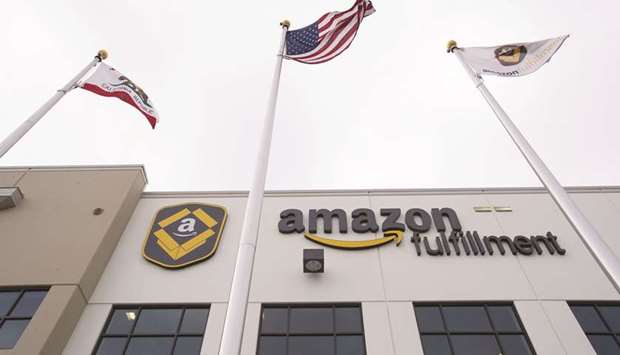Dixons Carphone, Britain’s largest consumer-electronics retailer, has thrived in an area where Amazon’s presence is long established. Selling an array of products from mobile phones to dishwashers, the company has boosted its market share by first matching Amazon on price across almost all categories, then redesigning stores to lure shoppers and sell them supplementary services.
“In a sense we’re lucky because we were one of the first sectors to catch the Amazon virus,” chief executive officer Seb James said at a press conference Wednesday. “Many died and we survived, and we think we’re now somewhat inoculated.” For retailers, the fear of Amazon has never been stronger. The online giant’s move into bricks-and-mortar retailing with the $13.7bn acquisition of Whole Foods Market wiped $17bn off the value of Wal-Mart Stores in a single day. The introduction of Prime Wardrobe the following week, a service which lets customers try on items at home before they buy them, spooked investors in companies from Macy’s to Zalando SE.
In the case of Dixons Carphone, trying to keep up with Amazon has been an everyday business since the company was formed in a 2014 merger, a deal that was partly a response to the growing threat of the online giant. As rivals such as the Comet chain have perished, Dixons Carphone has built an unblemished record of domestic sales growth.
“Amazon have seen off the runts of the litter, but it’s not easy for them now as those that are left are formidable competitors,” said Bryan Roberts, an analyst at TCC Global.
Dixons Carphone has a dedicated team that monitors more than 100,000 competitor prices and with Amazon making changes frequently, members run checks several times a day.
Store employees are equipped with tablets to show how prices stack up against rivals to help convince shoppers that buying online isn’t cheaper. Customers are shown that products such as £659 ($856) Sonos wireless soundbars and £139 Beats by Dr Dre wireless earphones can’t be bought elsewhere for less.
“Once you eliminate the price differential there’s little incentive for customers to look at a product in the store, then leave and order it from Amazon,” UBS analyst Andy Hughes said.
A similar strategy is being pursued by Dixons Carphone’s US peer Best Buy Co Inc. Price cuts and cost reductions have helped the US retailer’s online sales growth outpace Amazon’s, according to Bloomberg Intelligence.
To offset the damage that matching Amazon’s prices does to already thin profit margins, Dixons Carphone has introduced supplementary services such as mobile-phone screen repairs and paid-for tutorials that teach customers how to use their new laptops or digital cameras. These add-ons accounted for more than half its 4.1% operating margin last year.
Dixons Carphone’s refitted stores seek to offer a more engaging shopping experience, with Nespresso bars sitting alongside headphone testing areas. Suppliers likes Apple and vacuum-cleaner maker Dyson have deployed their own staff in the outlets to explain their latest gadgets to potential customers, and help fund store refurbishments.
The retailer’s progress has not been recognised by investors of late. The company has beaten analyst estimates each of the last four times it has reported, including last week’s annual results, according to Credit Suisse analyst Pradeep Pratti. Despite that, its shares have lost a third of their value since the UK voted last year to leave the European Union.
The discretionary nature of the company’s products potentially leaves it vulnerable to a spending slowdown as disposable incomes are squeezed. GfK’s index of UK consumer confidence fell to its lowest in a year in June.
James said last week that business remains robust and that the retailer remains alive to the prevailing risks, the same advice he offers those facing up to Amazon.

